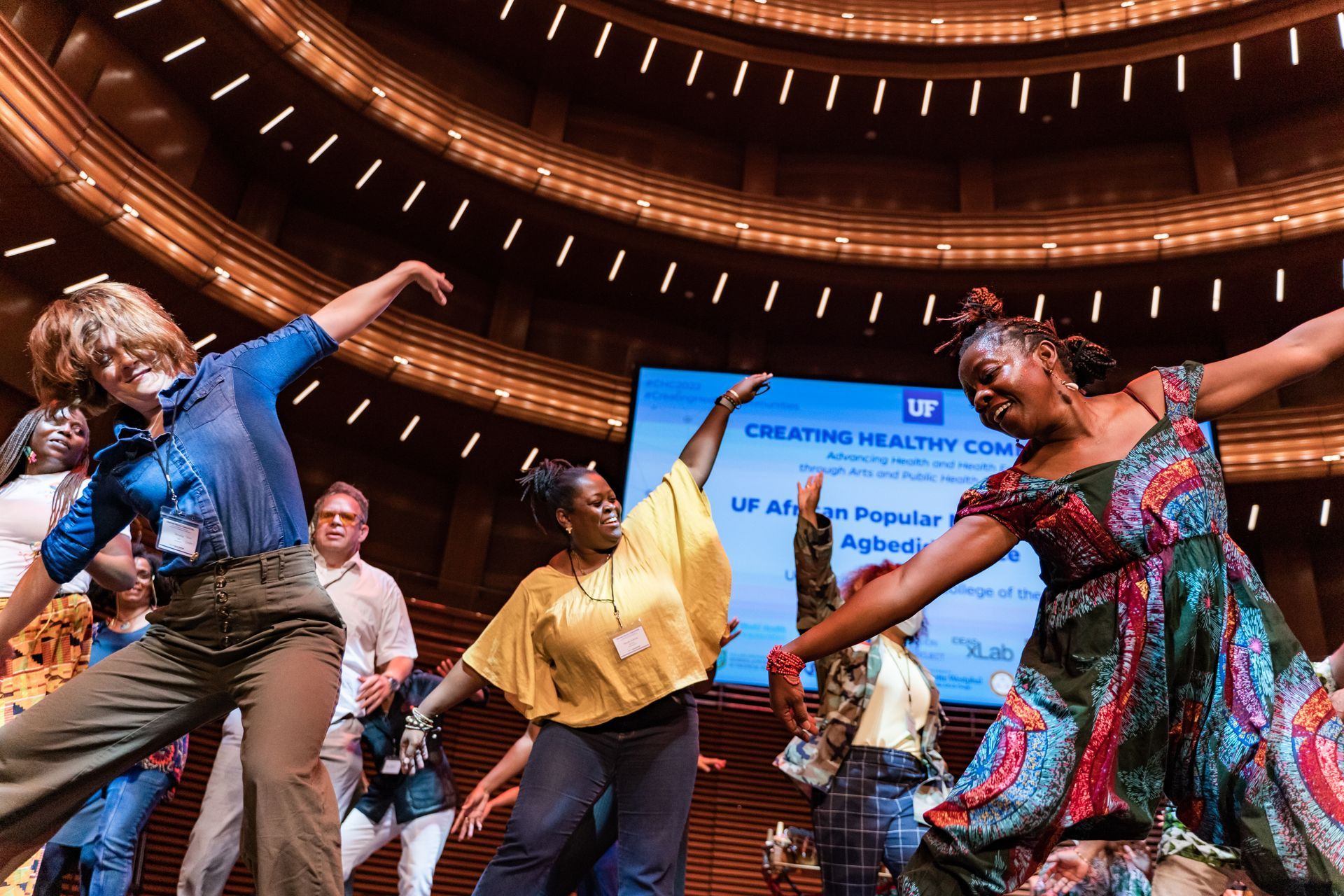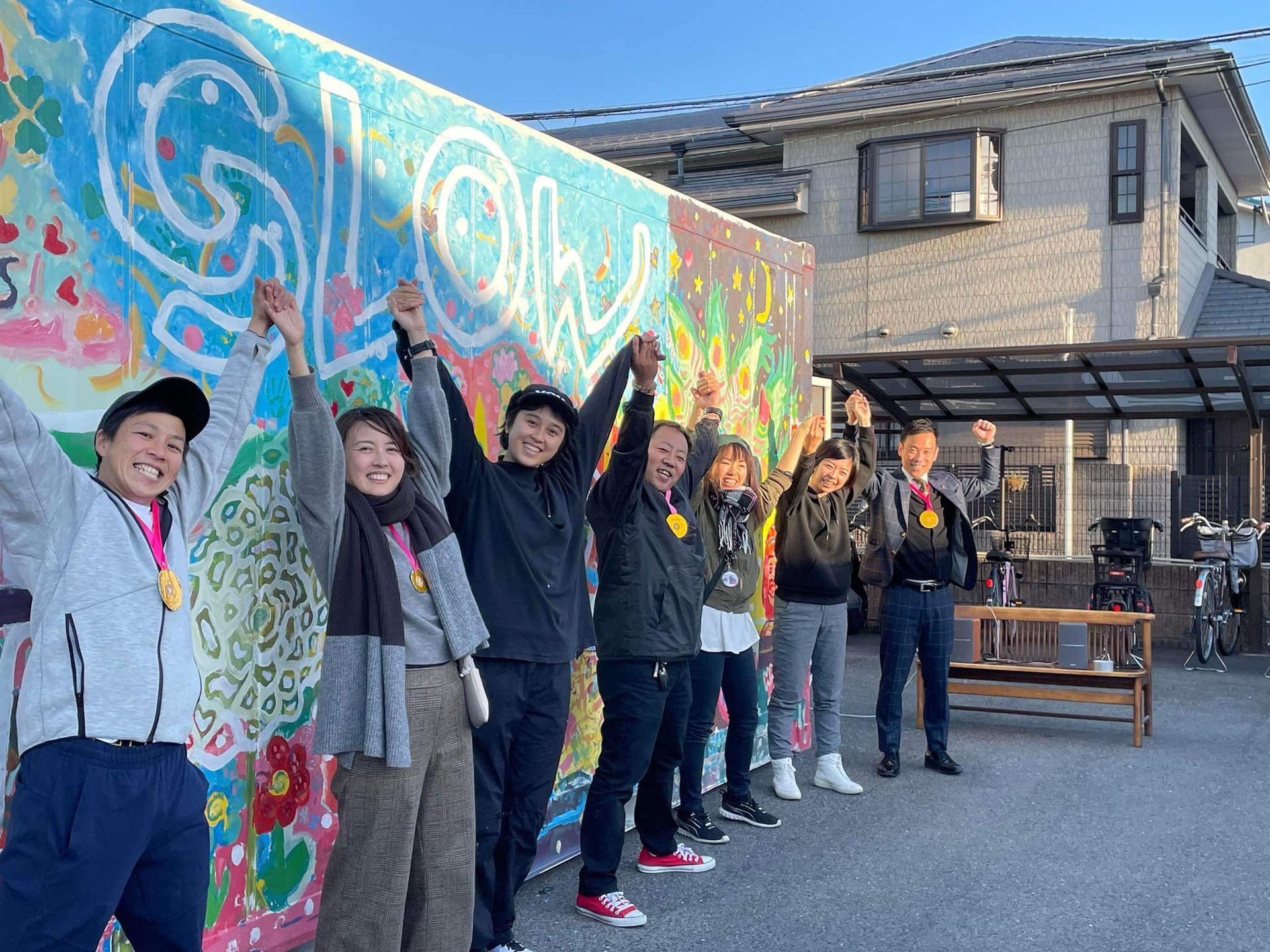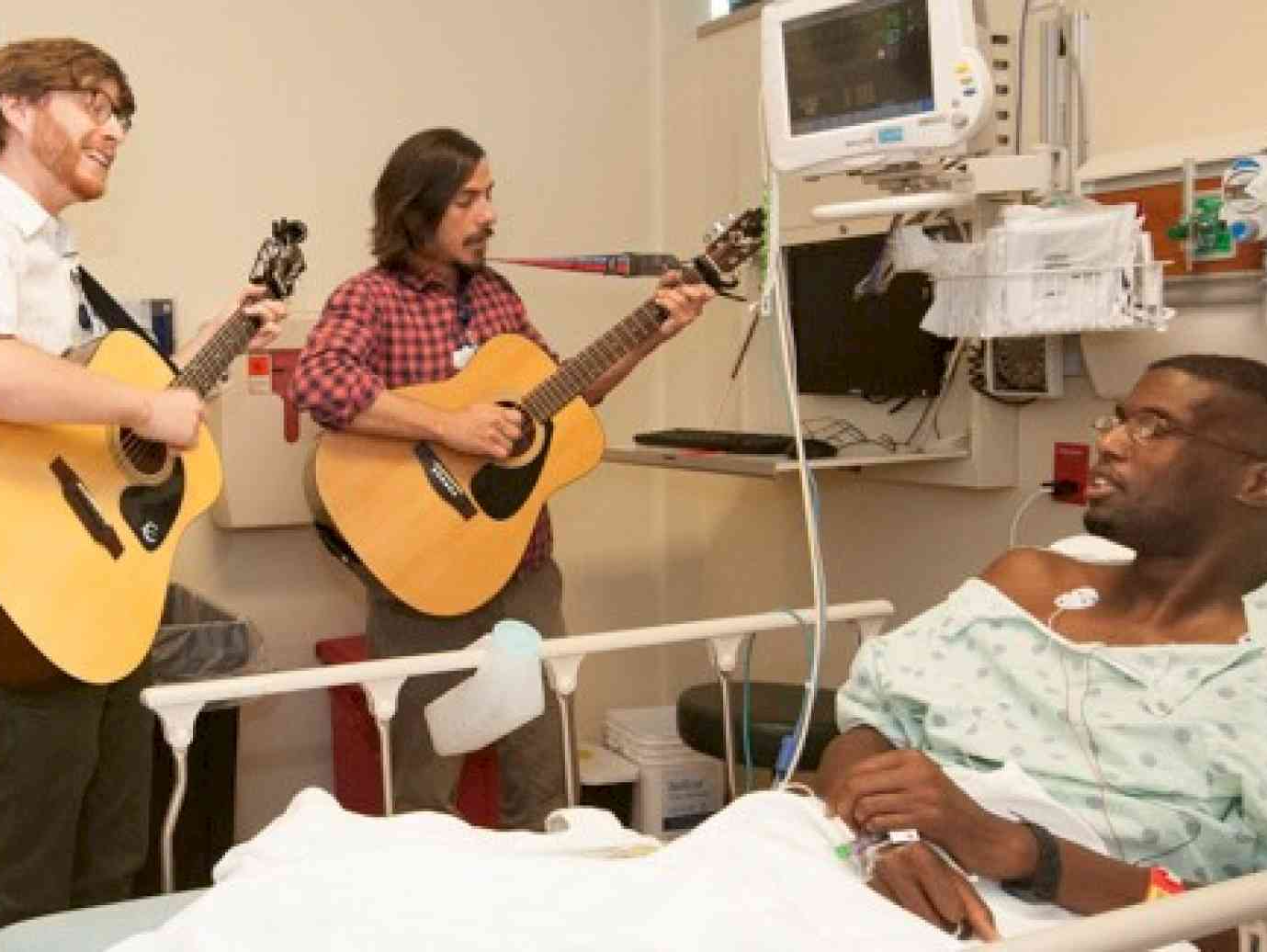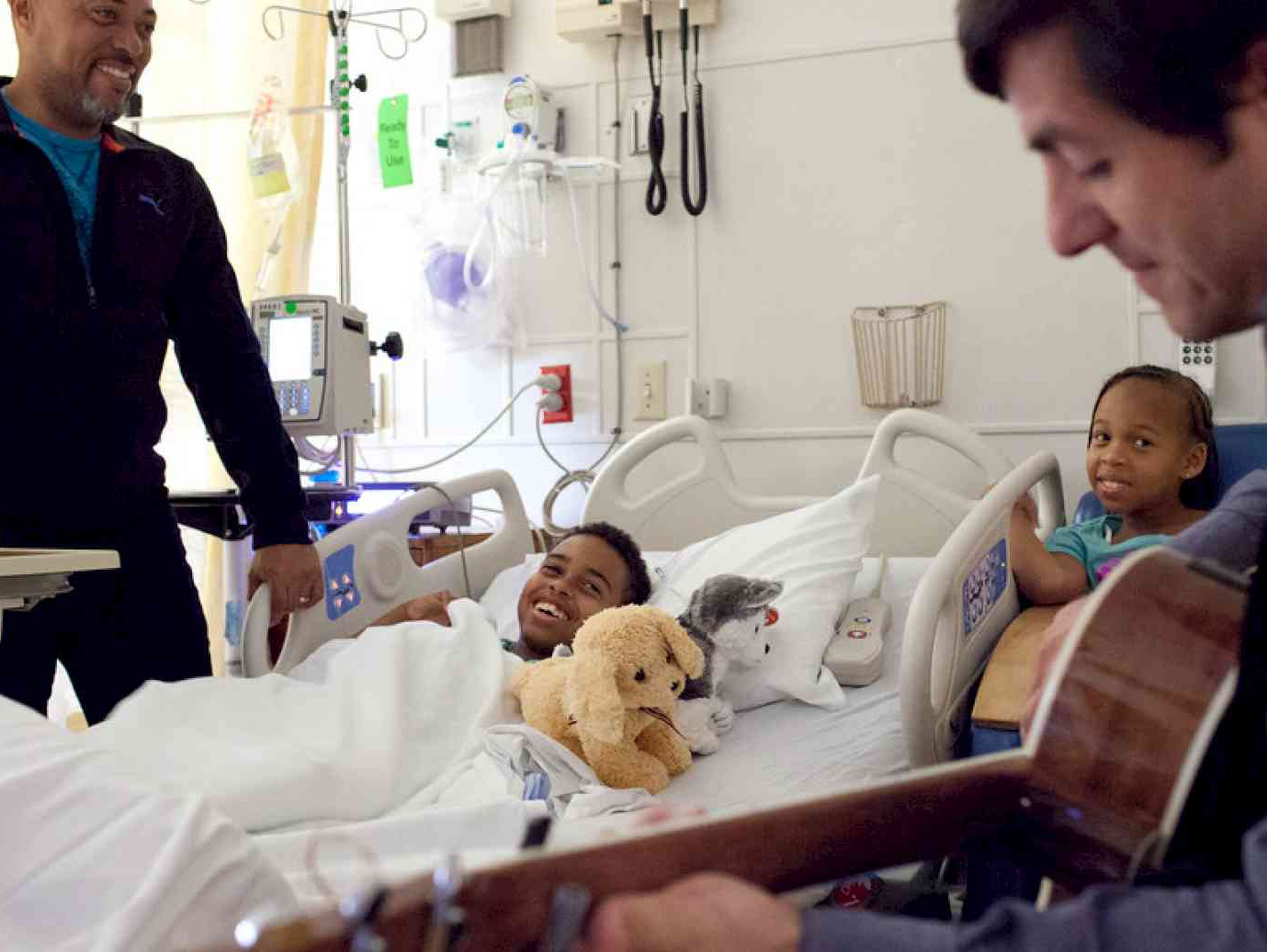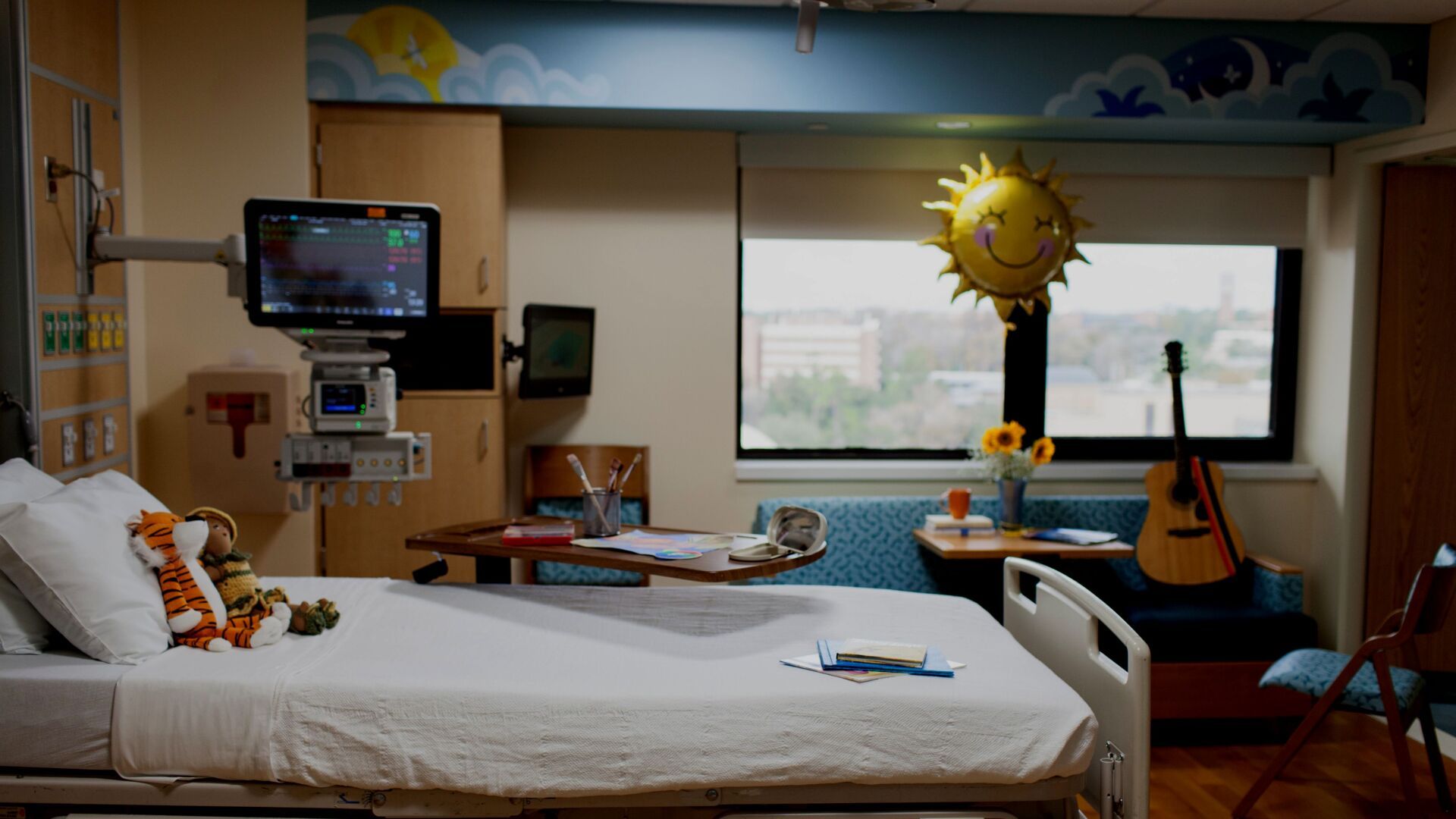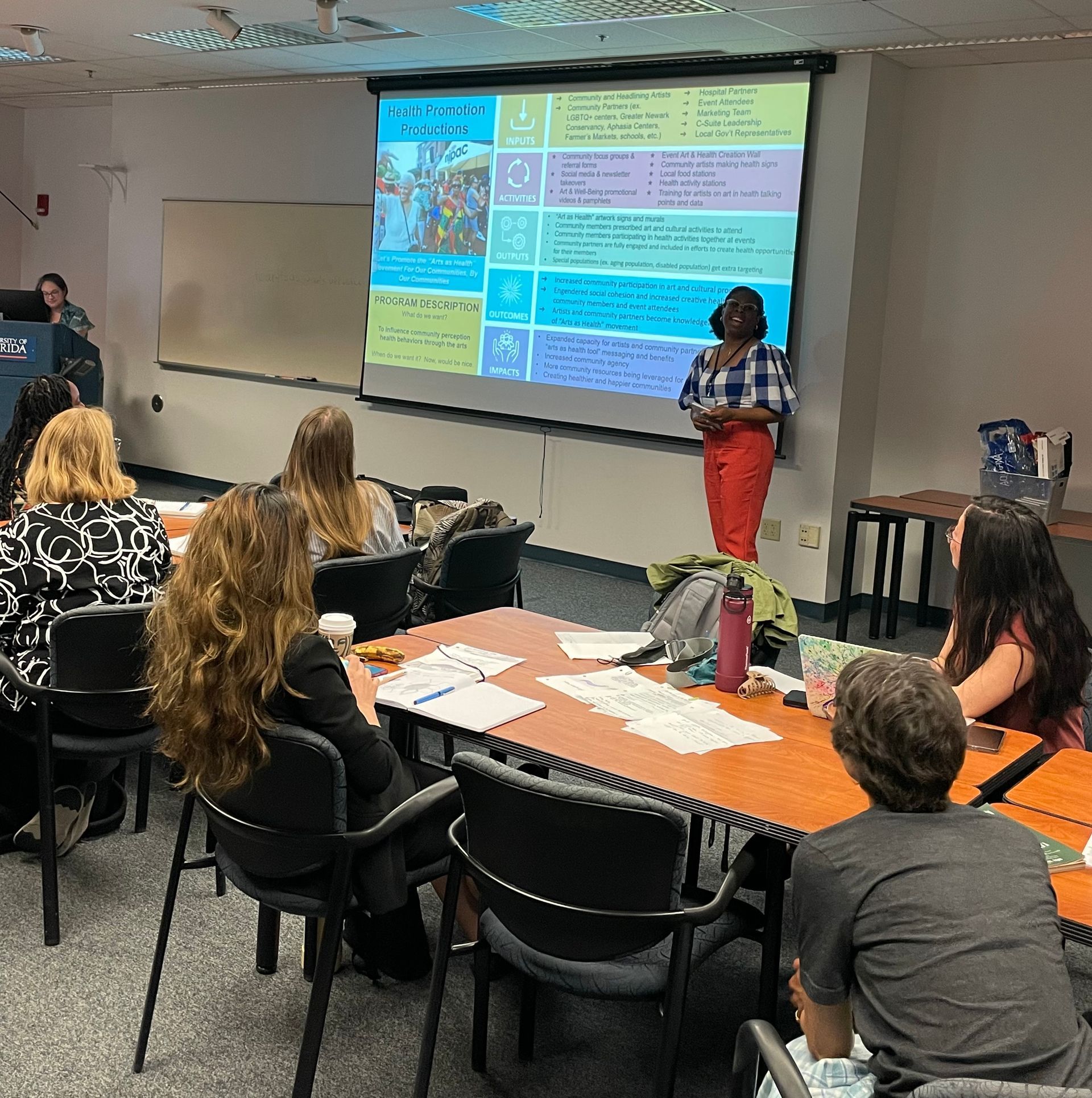About The Center for Arts in Medicine
Mission
The University of Florida Center for the Arts in Medicine is committed to advancing research, education, and practice in arts in health, locally and globally.
Vision
Arts, culture, and health are integral partners in the realization of healthier, more equitable lives for all people everywhere.
History
The Center for Arts in Medicine was formally established by the Florida Board of Regents at the University of Florida in 1999. The Center grew from the groundbreaking clinical work of the UF Health Shands Arts in Medicine program, and serves as the academic, research and outreach component of the partner programs. Read more about our history
here.
Core Values
Creativity
- The ability to stay open, adapt, imagine, innovate and change; and to celebrate these as a way of being
- Teach, mentor, and exchange through creative engagement, courageous exploration, curiosity, appreciation and
encouragement - Ask questions that provoke and inspire divergent thinking
- Lean into risk taking Remain curious and cultivate curiosity in students, peers, and collaborations
Excellence
- The ability to consistently operate and generate high quality, relevant and timely work with integrity and ever-expanding
reach - Prioritize and undertake activities in teaching, research and practice/service that align with the Center’s mission and
advance the leading edge in the field - Collaborate across disciplines internally and externally to ensure evidence-based and highly informed teaching,
research and practice/service Scale projects in alignment with resources (time, fiscal and other) - Acknowledge and celebrate faculty, staff, and student achievements Ensure that all behaviors reflect the values of the
Center, University and field
- The ability to consistently operate and generate high quality, relevant and timely work with integrity and ever-expanding
Justice
- The commitment to actionable steps towards changing conditions, processes and policies in alignment with the belief
that all lives have equal value. - Actively listen, observe and reflect on personal behaviors
- Participate in discussion about the ways our actions serve to communicate our values
- Advocate for inclusion of diverse perspectives that drive action
- Lean actively into discomfort in order to create change anywhere injustice exists or harm has been done
- The commitment to actionable steps towards changing conditions, processes and policies in alignment with the belief
Collaboration
- The ability to convene in healthy and generative ways
- Maintain presence and full, open, and honest communication by listening deeply and valuing what others share
- Prioritize inclusion and efficiency when working with others, both internally and externally
- Acknowledge and respect the benefits and burdens of collaboration
- Know and communicate the histories of UF and the Arts in Medicine Programs at UF, including its beneficial and harmful
impacts - Establish clear expectations with collaborators and abide by expectations mindfully
- Create and maintain robust connections and visibility through community engagement, partnership, and within-unit
interactions
Guiding Tenets
Three overarching tenets ground and guide the work and culture of the Center:
- The field of arts in health is built on a broad array of histories and practices at the intersections of the arts, culture and health; therefore, we embrace a broad range of practice in our education, research and practice.
- Each and every life has equal value and potential; therefore, we are committed to justice in our teaching, research and practice.
- We exist to advance evidence-based practice in arts in health; therefore, we seek the integration of teaching, research and practice.
Curriculum
Master of Arts | Arts in Medicine
This program is designed for students and professionals of all backgrounds and prepares students to be leaders at the intersection of arts and health. Students will gain hands-on experience in practice, research, and evaluation.
Certificate | Arts in Medicine
This 12-credit hour graduate certificate program offers an in-depth overview of arts in medicine, including a practicum course where students facilitate creative activities in a hospital or community site.
Certificate | Arts in Public Health
This 12-credit hour program is for graduate students and professionals in public health, the arts, and health services interested in using the arts to improve community health and wellbeing.
Combo Degree | Bachelor's + MA
Current UF undergrads majoring in Music, Public Health, Biology, Microbiology, Chemistry, or Psychology can start earning an Online Master's in Arts in Medicine during their Junior or Senior year. Combine your passions for creativity and wellbeing and get a head start on your future.


